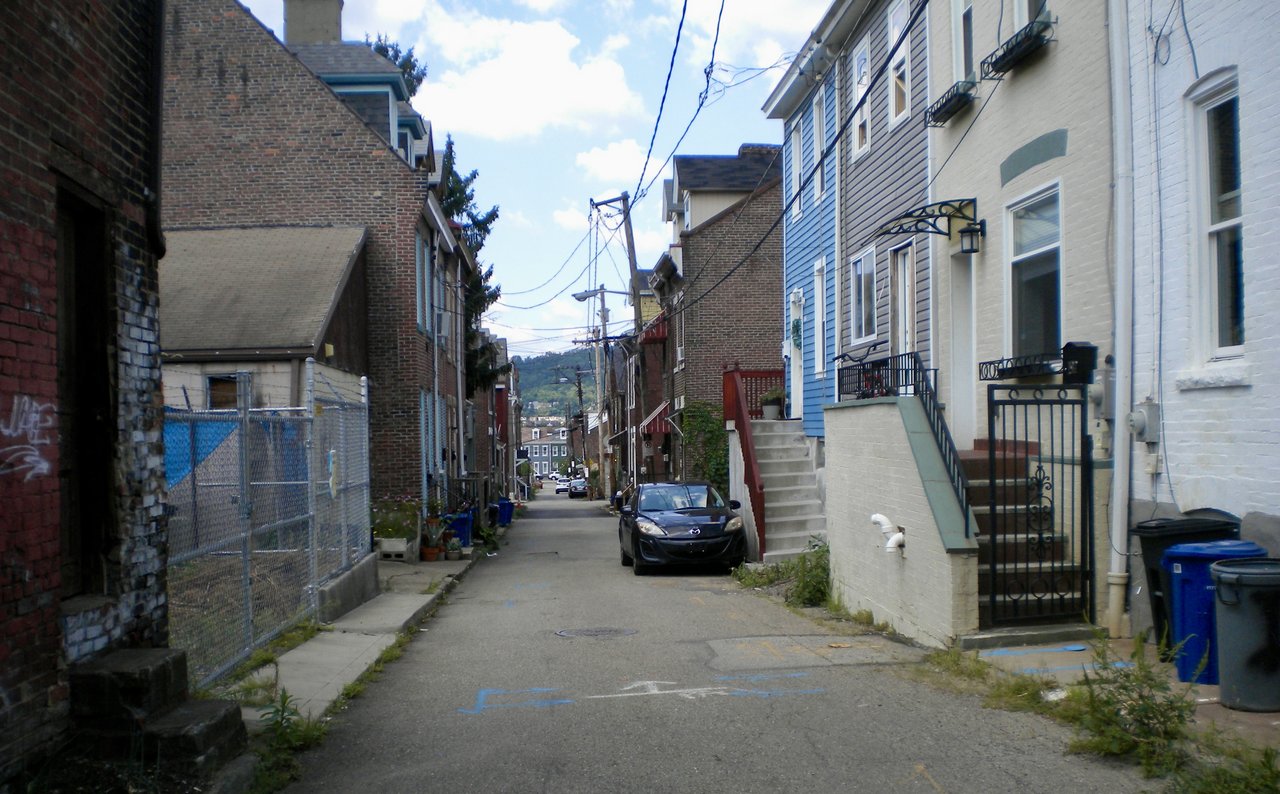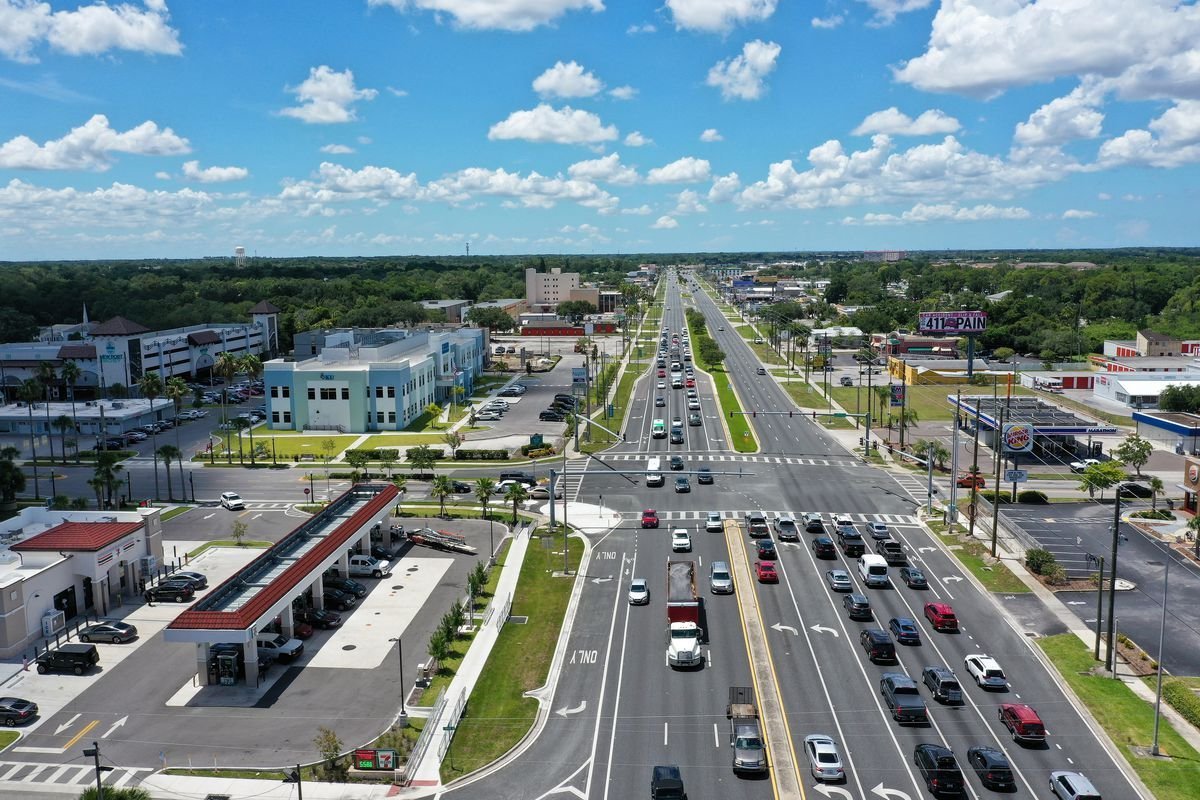Moving... to Pittsburgh?

I have to check out of my flat here in Pittsburgh tomorrow morning, just as I've gotten into a bit of a groove here. And as I write this, I realize something: I love it here!
For the past several years I've found myself so frustrated at the way we've developed land in the United States in the course of my lifetime. Unfortunately, arcane zoning laws have turned most American cities into a bizarre mix of hyper-dense high-rise districts right next to sprawling single-family neighborhoods. So when most people think of cities in America, they think of this dysfunctional juxtaposition. Restrictive zoning like this causes places that are unlivable for everyone. People who live in high-rises have to shuffle into elevators to get to their houses and live in concrete prisons in the sky. The people in the houses below pay a mighty premium for their yards and are forced to drive to complete most errands. It's monumentally stupid and there's a better way.
I already wrote about Lawrenceville's damn near perfect level of density. As I've been exploring the area a bit more on foot (and coming to terms with how much living in flat, sea-level Florida has destroyed my capacity for hiking up hills), I've discovered that Lawrenceville's perfect density continues on up the hill to the Bloomfield and Polish Hill neighborhoods.
I've also grown accustomed to walking out of the loft I'm renting, down the stairs, and a few short, quiet blocks to a bustling coffee shop where I do my morning writing. In Florida, my walk to my favorite cafe was horrendously interrupted by crossing a four-lane stroad, 4th Street. St Petersburg planners obviously thought it wasn't a problem to bisect two beautiful neighborhoods with a high-speed (actual speeds of 40-50 MPH) state highway, because, you know, progress I guess?
Now, what I just said sounds like an absurdly privileged thing to say. "HOW COME I CAN'T WALK TO THE COFFEE SHOP TO GET MY LATTE WITHOUT WALKING ACROSS A HIGHWAY?" But my selfish daily coffee indulgence isn't the point. The point is that mid-level density creates a livable place where people actually want to be. And if we build more of these sorts of places—places with four-story mixed-use buildings, places with public transit, places with businesses intermixed with housing—that will result in more livable environments for everyone.
But no, we continue to build places that look like this:

Who in the world wants to be in this place? This place isn't inspiring. It isn't functional. It isn't sustainable. It's a travesty. (PS: That's US-19, a giant stroad that cuts through Pinellas and Pasco Counties in Florida. It's the deadliest such road in America for pedestrians.)
Now, before you say "You should go to <insert impoverished country here> and see how good you have it"—that's not an argument for not demanding progress and change here. Yes, America is a land of plenty, materially. The economic engine here is unparalleled to anything that's ever come before it. And we should continue that spirit of innovation and abundance. But just like the smog-filled cityscapes of the early 20th century gave way to clean air and water initiatives that have vastly improved the lives of city dwellers across America, so too should livable street initiatives clear the streets of private automobiles and herald a new era of livable cities.
Anyway.
Pittsburgh is especially interesting to me as a place to buy property for a few reasons.
For one, the city has "good bones"—its prewar city grid and grandfathered medium-density streets mean it's walkable by default.
Secondly, Pittsburgh is fairly immune from natural disasters. Being inland, there's no hurricane risk. It's fairly seismically inactive. There is a bit of flooding risk, but only in the low-lying areas.
And third, Pittsburgh, relative to other American cities, is fairly insulated from the worst effects of climate change. In a long-term view, this makes buying a home here a no-brainer. People are increasingly going to flock to cities where they won't have to endure ever-hotter summers, rising sea levels, and suffocating wildfires.
Pittsburgh also has excellent infrastructure for a city of its size because it's half the size it used to be. There's a great network of hospitals, excellent universities, and a massive stock of character-rich housing in livable neighborhoods.
I'm not sure what next year will bring, but I'm definitely bookmarking my time in Pittsburgh and might consider buying a rowhouse here next summer. Even if I don't live here full-time, I don't think I've ever been to a city whose geographic location, cost of living, infrastructure, and culture was more balanced.
But please for the love of god don't tell anyone I told you. At least not until next summer.